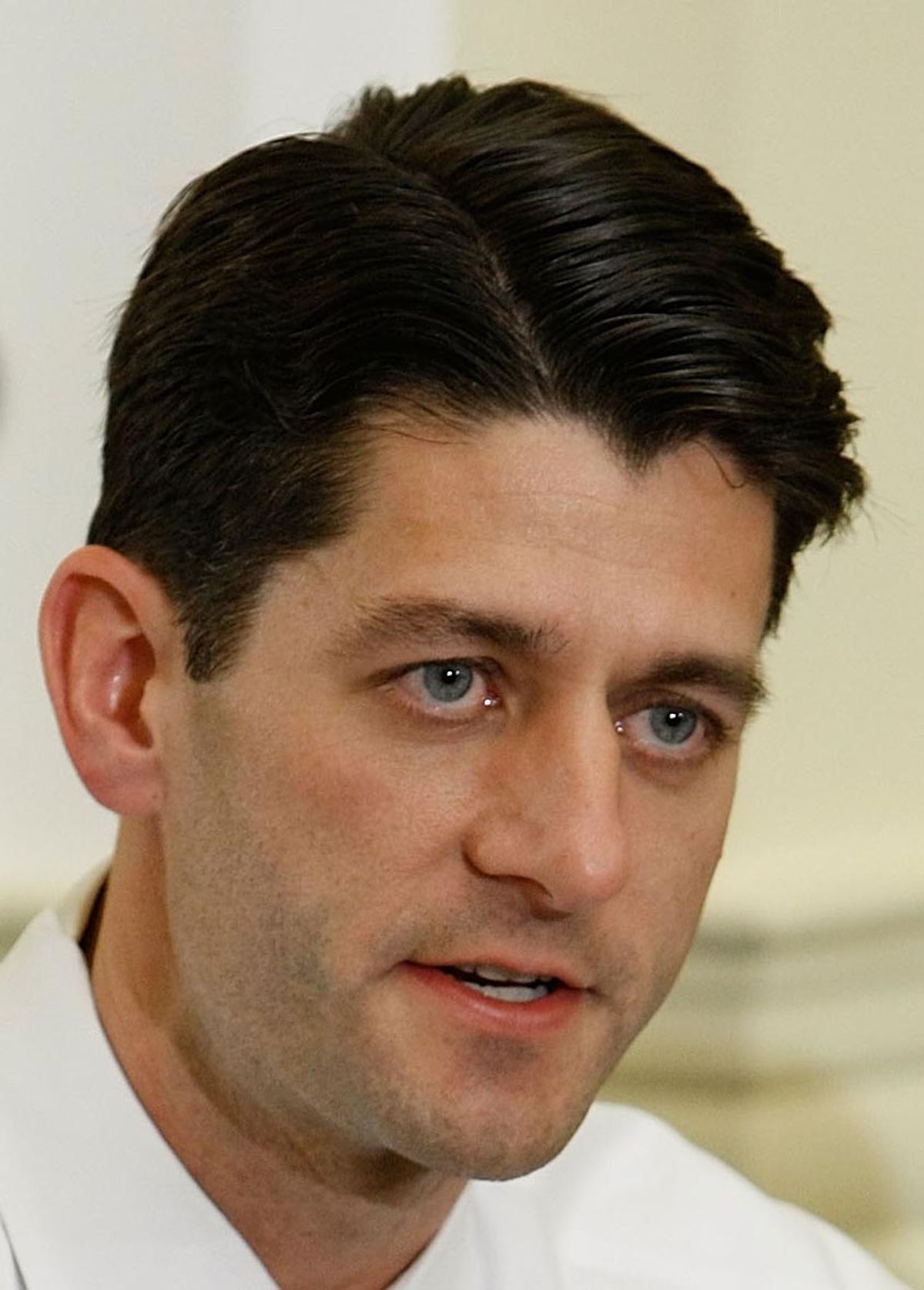Moving to keep a campaign promise to slash the federal budget, Republicans controlling the House went on record Tuesday to return most domestic agencies to 2008 budget levels in place before President Barack Obama took office.
The 256-165 vote came on a symbolic measure but is an opening salvo in an upcoming battle over the budget that will pit the House GOP against Obama and the Democratic-controlled Senate.
It comes just hours before Obama was to issue his own proposal: calling for a five-year freeze for most domestic agencies at current levels. That's more than $80 billion a year higher than the level of cuts Republicans want. Obama also reportedly will call for lawmakers to back a five-year plan put forth by Defense Secretary Robert Gates to save $78 billion in defense spending, an idea that has many Republicans anxious.
The immediate issue is how to wrap up the long overdue budget for the 2011 budget year that began in October. A battle over the 2012 battle will follow on a parallel track starting with Obama's budget submission next month.
"The days are over of unlimited spending, of no prioritization," said Budget Committee Chairman Paul Ryan, R-Wis. "And the days of getting spending under control are just beginning. This is a first step in a long process."
The vote comes on a nonbinding resolution that promises cuts approaching 20 percent of the budgets for agencies like the Education and Commerce departments when Congress wraps up the budget for the current fiscal year. The White House warns that such cuts would mean furloughs of tens of thousands of federal workers.
The actual GOP cuts would be made in a follow-up spending bill slated to advance next month and are sure to encounter strong resistance from the Democratic-controlled Senate and from Obama. Despite Tuesday's action, the cuts are a long way from becoming law; in fact, Democrats may have a tactical edge since Republicans are reluctant to spark a government shutdown if their demands aren't met.
Republicans say Tuesday's measure is the first step in keeping a campaign promise to cut $100 billion from Obama's budget for the current year. The actual savings would be less -- about $84 billion -- since Obama's budget increases were never passed. And because the budget year has been under way since Oct. 1, GOP leaders say they can't deliver the cuts by the Sept. 30 end of the fiscal year; instead, they say they will spread them over a full calendar year.
Such cuts would shake most Cabinet agencies -- the Pentagon and the Veterans Affairs and Homeland Security departments largely would be spared -- and may be unpopular with the public, which registers strong support for the idea of spending cuts in general but often balks when seeing specifics like cuts to school aid, Amtrak subsidies, road funding and public broadcasting.
"These cuts will go deep and wide and will hit virtually every agency and every Congressional district in this country, including my own," said House Appropriations Committee Chairman Harold Rogers, R-Ky. "Every dollar that we cut will have a constituency, an industry, an association and individual citizens who will disagree with us."
That is not sufficient for many House conservatives. Almost 100 of them Monday wrote House Speaker John Boehner, R-Ohio, urging him to cut the full amount over the final seven months of fiscal 2011 -- a prospect the White House warns would require slashing agency budgets by almost one-third, leading to the massive furloughs and the gutting of critical programs and agencies.
Boehner said Tuesday that conservatives would be allowed to offer amendments to cut spending further and that the "House will work its will."
Not a single Republican opposed the measure; 17 Democrats, mostly moderates, voted for it.
Even newly elected conservatives may recoil when they see the specific cuts that would be required to fulfill the promise: smaller Pell Grants, less aid to hometown school districts and cuts to NASA that could cost jobs in GOP-leaning Texas and Alabama.
Rep. Jim McGovern, D-Mass., said the GOP resolution puts "Pell Grants, medical research, food safety, (the) FBI ... and other vital programs on the chopping block."
Democrats say that while they agree with the need to wrestle the budget under control, it's unwise to slash the budget immediately since the economic recovery is just taking hold. At the same time, they're ready to defend programs aimed at helping the poor, such as subsidized housing, food aid for low-income pregnant women and heating subsidies.
Republicans aren't saying that every account will absorb a cut back to 2008 levels. The most popular programs might be cut less; others slashed even more.
Still, a return to 2008 levels would mean Pell Grants for college students from low-income families could be cut by well more than $1,000 from the current $5,550 maximum. A cutback in housing subsidies would mean that hundreds of thousands of people won't see their Section 8 vouchers renewed. And a $1 billion, 24 percent cut to the historically underfunded Indian Health Service would reduce critically needed health care in some of the most impoverished places in the country.
The president is facing a challenge in the Senate, too, as Majority Leader Harry Reid, his top ally there, is rejecting the his call for a ban on the practice of stuffing home state projects known as earmarks into spending bill.
Reid says the president "has enough power already" and that Obama's embrace of an earmark ban promoted by Republicans is just a "lot of pretty talk."
Obama has frequently said he opposes earmarks but he has repeatedly accepted them in larger spending bills. The earmark ban has been driven chiefly by House Speaker John Boehner, who vows not to send Obama any spending bills containing them.



Shares